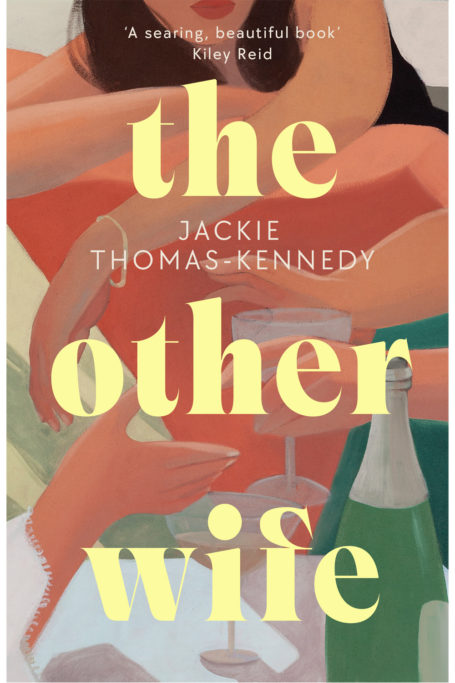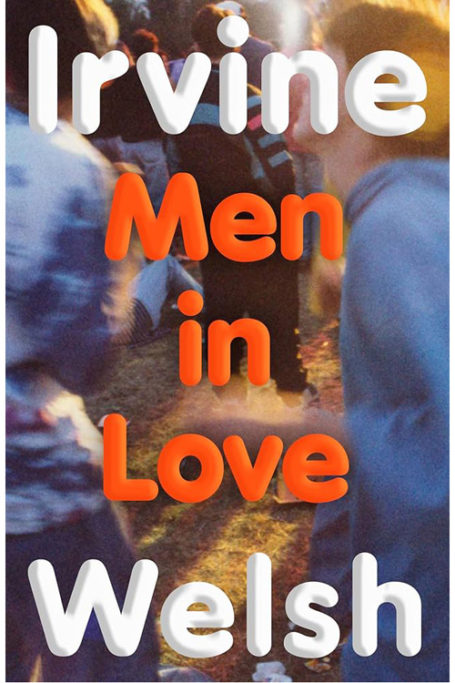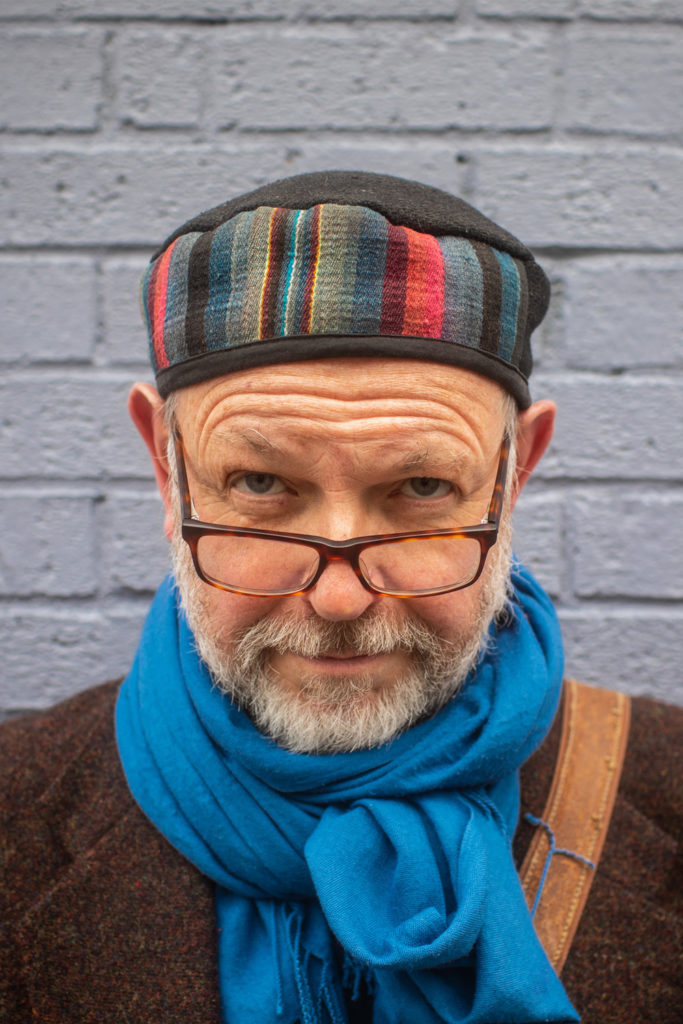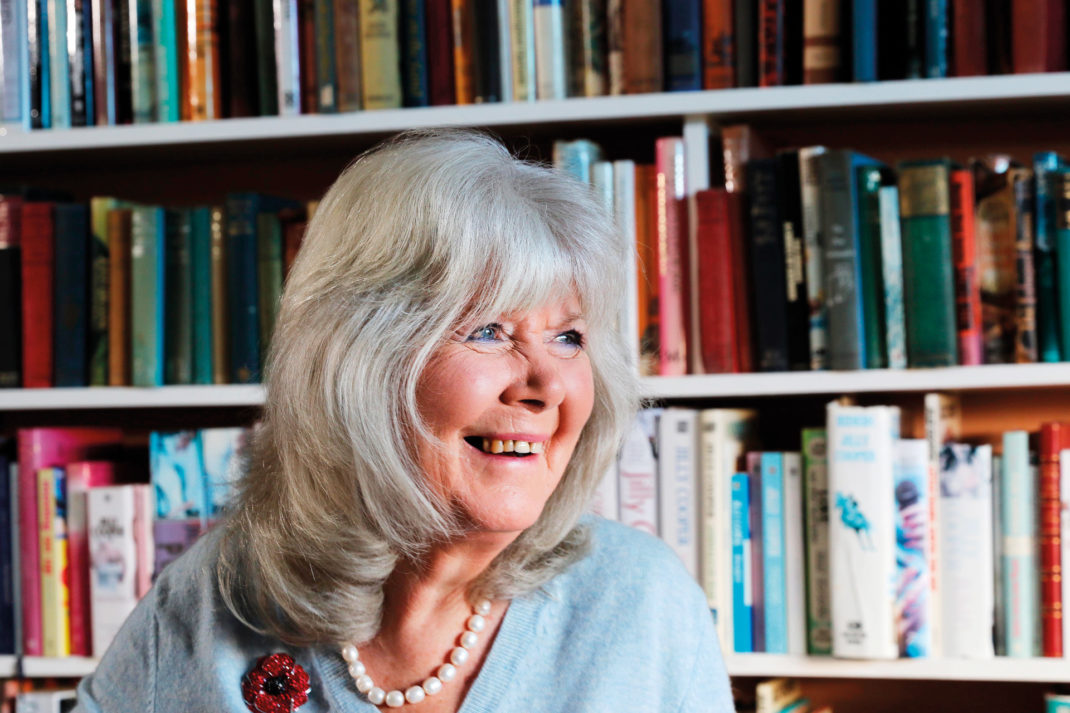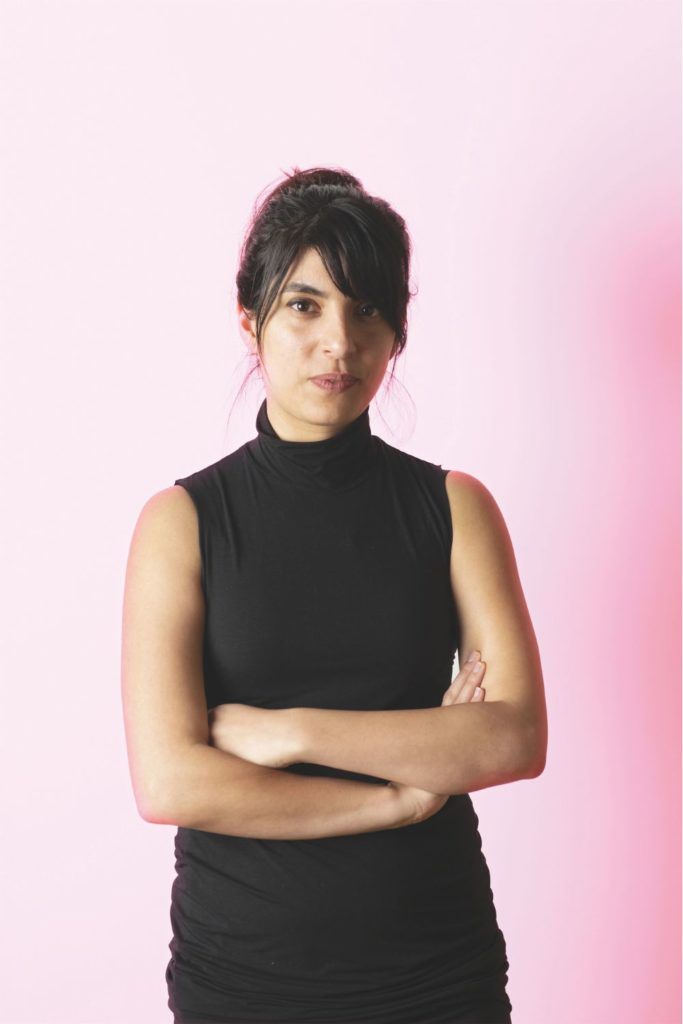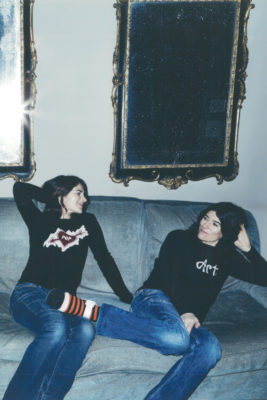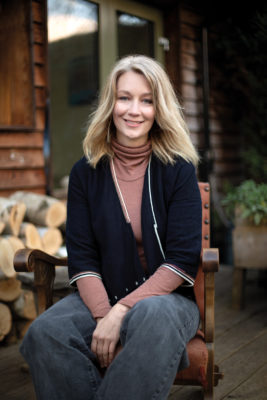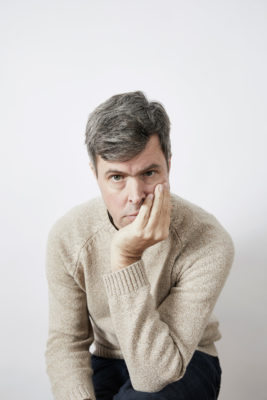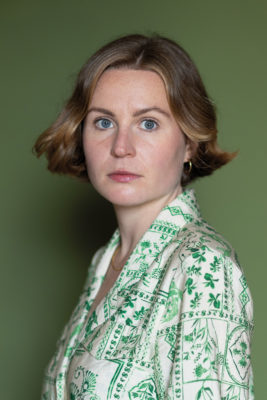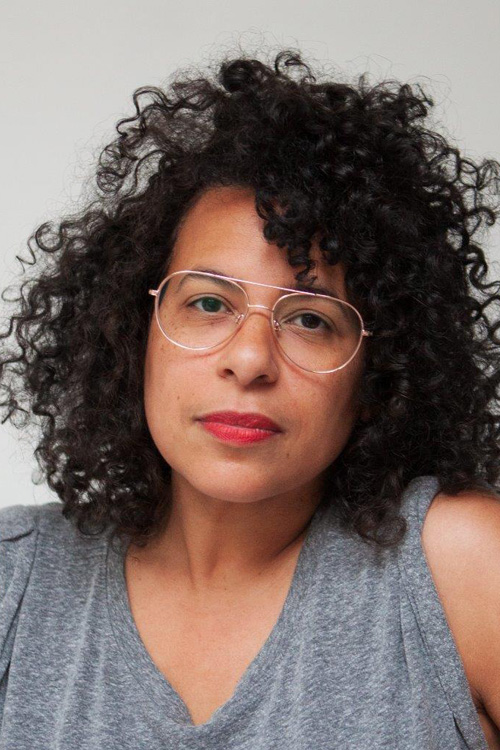
Jackie Thomas-Kennedy On Wavering Marriages & What-Ifs
By
8 months ago
The Other Wife is this month's C&TH Book Club pick
As she hurtles towards 40, Zuzu Braeburn has the life she’s always dreamed of – a beautiful house, a child, a successful partner and school-gate friends. But her marriage is wavering, and looking back she ponders the sliding door moments of her life decisions: choosing to live with her mother over her father after their divorce, choosing to become a lawyer rather than an artist, and marrying Agnes despite her lingering feelings for her male best friend Cash – who she’s still regularly texting. When an unexpected loss takes Zuzu back to her hometown, the ‘what-ifs’ threaten to destabilise her life.
This is Jackie Thomas-Kennedy’s debut novel, The Other Wife, in a nutshell. In July’s Book Club, Belinda Bamber sits down with Jackie to discuss wavering marriages and what-ifs.
C&TH Book Club: The Other Wife By Jackie Thomas-Kennedy
Belinda Bamber: Aged 37, Zuzu looks back at her choices and wonders if she made the right decisions – choosing her mother over her father as a teen, choosing Agnes over Cash in her 20s. Life with her successful wife Agnes has been fulfilling but has hit a rocky patch. Is this a mid-life crisis or a rite of passage?
J T-K: If it’s a rite of passage, many do it with more grace and composure than Zuzu! I think a series of watershed moments are often followed by reflection; I also think compelling fiction requires complexity and unease. Zuzu can both love her life and feel somewhat anguished by the nature of time, by the fact of ageing, by the loss of certain opportunities. In the compressed time period during which the novel is set – a single long weekend – this anguish becomes unmanageable and drives her to some impulsive choices.
Belinda Bamber: It’s often said that an author’s first novel is the most autobiographical: was this true for you with The Other Wife?
J T-K: This is not an autobiographical novel; however, Zuzu’s love of the Atlantic coast is true to my life. To conjure her feelings about standing on the shore, I drew on memories of childhood trips to the beach. The first literal act of writing I can recall is writing my name in the wet sand. Years ago I spent seven months in Provincetown, Massachusetts as a writing fellow at the Fine Arts Work Center, an ideal landscape for a process that benefits – at least in my case – from so much looking at the ground, the sky, the water, while trying to unknot a draft.
BB: The ‘Other’ of the title resonated for me in terms of Zuzu’s perceived ‘otherness’ in East Coast America, in terms of race and sexuality, as well as the fact she’s married to a woman. Did you choose that title before or after you began writing?
J T-K: I’m so interested in this interpretation; it didn’t occur to me that the word ‘other’ would be read this way. This title came after I’d written the novel. I considered lines of poetry I love, song lyrics, phrases pulled directly from the book’s dialogue, but none of it was quite right (and some of it, in retrospect, was risible!). What I like about the phrase ‘The Other Wife’ is that it applies to Zuzu and Agnes equally: it brings them to the same plane, and I picture them standing side-by-side. I also like the implication of an alternative in the word ‘other’. On occasion, Zuzu imagines what her life would have been like if she’d married a different person, or if Agnes would have been happier with someone else; these ‘other wives’ haunt her.
BB: Zuzu is married to Agnes but retains a crush on her male college friend, Cash. She rarely labels her sexuality, though Agnes’s ex Heidi sniffs that Zuzu is bi when they meet in 2007. Is gender immaterial where love is concerned, or is Zuzu in denial?
J T-K: Zuzu would surely say it’s immaterial. Her interest in Cash is swift and familiar. Her interest in Agnes is just as swift – as soon as they meet, she is enormously distracted by Agnes – but it takes her longer to recognise what she feels. By 2007, Zuzu would not be in denial, having lived in New York and attended a liberal arts college. She anticipates, correctly, her parents’ initial discomfort, but doesn’t intend to live a life shaped by their preferences.
BB: Why do you rarely describe a character’s look or clothing unless it’s relevant to the plot?
J T-K: When I was first starting to write, I thought it was essential to capture a character’s complete physical appearance – hair and eye colour, clothing, mannerisms – as soon as they arrived on the page. (I felt that way about rooms and houses, too). As a reader, I still absolutely love a long, rich, intricately detailed description, but lately I am most intrigued when physicality is withheld, then called forth to do a great amount of work in just a few words. Ann Beattie does it in one of her stories with a description of elbows. The sudden focus on a single detail or object has such bright, abrupt power.
BB: Did her character evolve and change from your original conception as the story developed?
J T-K: Zuzu’s character evolved a lot over time, particularly in the context of her relationship to Noel. In earlier drafts of the book, the focus was on Zuzu, Noel, and Julia, and Cash was a much more peripheral figure. These drafts lacked some of the playfulness that I hope ultimately made its way to page.
BB: You don’t hesitate to show Zuzu as self-centred and unkind – Noel says she’s ‘abrasive and condescending’ – was it hard to expose your character at her worst?
J T-K: It wasn’t hard to expose Zuzu at her worst; characters at their worst are often the most interesting to me. As both reader and writer, I’m not looking for characters to admire or emulate. Fiction is not the place for exemplary decision-making. I love Charles Baxter’s The Art of Subtext: Beyond Plot, and one of the passages I’ve marked and reread many times is the following: ‘Stories thrive on bad behaviour, bad manners, confrontations, and unpalatable characters who by wish or compulsion make their desires visible by creating scenes.’
BB: You write deceptively simple sentences that reverberate with heartache and humour. I have so many favourites, including the moment Zuzu joined her mother at the kitchen table: ‘When I sat down, she winced as if I’d touched her.’ What made you such an acute observer?
J T-K: I’ll attribute some of it to the abundant time I spent in the car as a child. The commute from one family member’s home to another, or to school, was fairly long, some of it on back roads or highways flanked by trees. This sounds quite beautiful to me now but I think I found it dull and predictable then. Even though I invariably held an open book in the car, I spent much of the time staring out the window, making up stories, noticing whatever was there to be noticed. If someone displayed a glass bottle on their windowsill, or if a shutter fell off the house, or if they painted the front door, I wanted to know why.
BB: You’ve chosen a quote from John Cheever for the flyleaf and like him you excel at alighting on the detail that brings a scene alive. Which authors have inspired you?
J T-K: Thank you! Cheever, always: his novels and stories, his letters, his journals. When I have only a few minutes to read and am in need of a spectacular sentence, I flip through The Collected Stories of Jean Stafford or The Age of Innocence, or Ann Beattie’s “Snow” or “Skeletons”. I reread Brandon Taylor, Jo Ann Beard, Edna O’Brien, Toni Morrison, Claire Keegan, Justin Torres, Rita Dove, Elizabeth McCracken. For a long time I avoided craft books; now I love them, in particular The Art Of series from Graywolf Press.
BB: Which novels are you looking forward to this summer?
J T-K: There are so many. To name two, I’m looking forward to Josephine Rowe’s Little World, and – technically not out until fall – Bryan Washington’s Palaver.
BB: How and where do you make space for writing in your family life?
J T-K: Whenever I can, wherever I can. My family often generously gives me a full Saturday to write. I keep my laptop open on the counter when I’m washing dishes, and sometimes I take a break and type a few sentences. Story often starts as an image for me. When I don’t have the opportunity to write in the moment I hold onto the image for later, even when I’m not sure what it means.
BB: I smiled at Zuzu’s self-consciousness about having a ‘shiny’ car instead of ‘a hand-me-down Saab’ because in the UK the social signifiers would generally work the other way. Have you ever felt confused or exasperated by British social codes?
J T-K: Have not had the opportunity – only a few lovely visits years ago! – though I would add that the social signifiers Zuzu mentions are probably specific to the region (New England).
BB: Zuzu’s school-gate moms assume her wife will be more helpful at home than their washing-up-averse husbands, though this isn’t true – unlike them, she doesn’t even get a weekend lie-in. Did you enjoy debunking the inherent sexism in the myth that wives are naturally more domesticated, or domesticable?
J T-K: Part of what frustrates Zuzu is that her interests happen to align, to some degree, with those myths. It frustrates her that Agnes isn’t particularly interested in housekeeping, even though she would simultaneously argue that Agnes has every right to reject that constant labour. I think Zuzu fears that her hard work is easy to walk past without noticing. Whenever I watch a TV show or movie, I notice the empty kitchen sink or the nicely made beds in a house full of people and I wonder, who did all the cleaning?
Companion Read: Men In Love By Irvine Welsh
No one sends up toxic masculinity with the wit of Irvine Welsh. In this late-eighties Trainspotting sequel, the drug that upends Renton and Sick Boy isn’t heroin but love. ‘You need tae decide whether you’re a shagger or a lover… but when a shagger faws in love, it’s game over,’ advises their mentor, Eddie. The battle for their souls – to a rave culture soundtrack – is of Thatcherite greed vs Romantic poets. At the climactic aristo wedding, Begbie dodges jail to deliver the best man’s speech. Electrifying.


